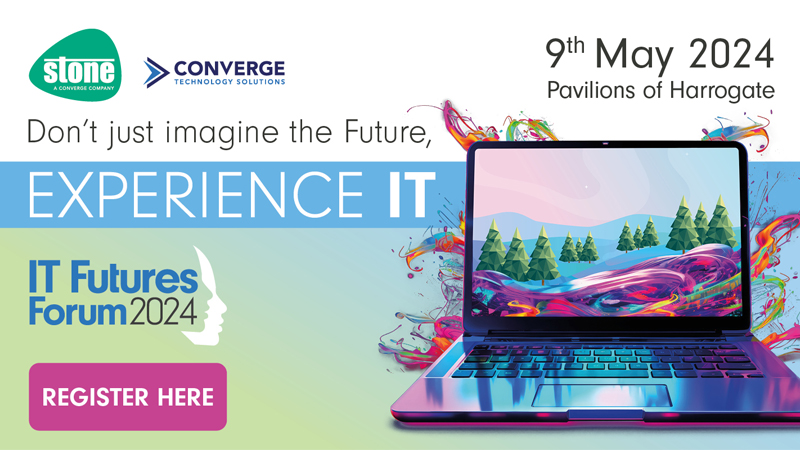Supporting esports in education with gaming labs powered by Intel
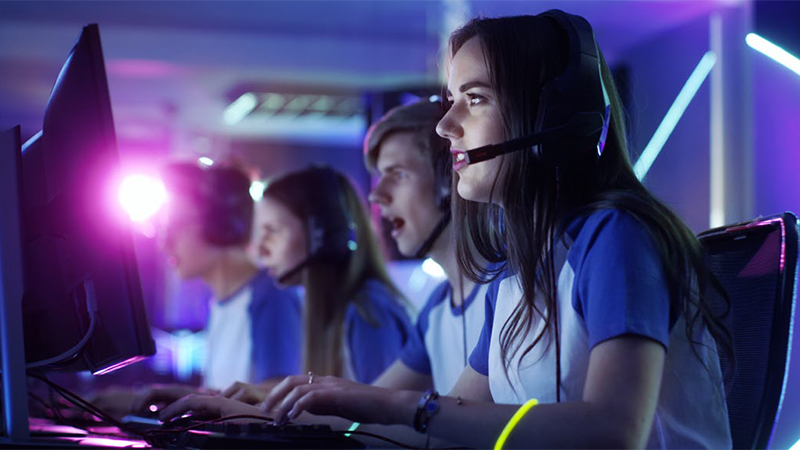
In partnership with Stone Group, Intel's support for esports education in the UK is helping to unlock new digital skills and career opportunities for students
Contributors
Sharon Westcott
Newcastle College Course Leader
BTEC L3/L2 Esports
Lisa Foster
Curriculum Leader, Carlisle College
Rob Elson
Product Manager, Stone Group
Executive summary
When Team Vitality won the Intel Extreme Masters Rio Major 2023, they did it in a 15,000-seater arena, watched by million of fans live over the internet. Successful teams, playing at big international tournaments, showcased with broadcast-quality production values are inspiring new esports fans every year.
Esports is booming. According to IMARC Group [1], the global esports market had a value of US$ 1.18 Billion in 2021 and this is expected to reach US$ 3.86 Billion by 2027. There’s also a growing mainstream appeal. The inaugural Commonwealth Esports Championships 2022 was held in the UK city of Birmingham and, while the IOC has ruled out esports being part of the Paris 2024 Olympics, the Olympic Esports Series (OES) launched in 2023.
With industry-leading PC gaming innovations and unrivalled support for the esports ecosystem, Intel has fuelled the progression of professional gaming from the beginning [2]. Key Intel partnerships include: Intel Extreme Masters, ESL One, ESL CS:Go Pro League, DreamHack Masters and the British University Esports Championship. A 20-year collaboration with ESL Gaming was renewed in 2022, which will see over $100 million invested in esports over three years, up to and including IEM Katowice 2025.
Intel’s wide-ranging support for competitive gaming also filters down to a grassroots level, where it is committed to the progression of esports in education. With several universities and colleges already offering esports courses, Intel technology partners are helping higher education institutions successfully deploy new equipment in dedicated ‘gaming labs’ to improve student learning.
Teaching esports
The British Esports Federation developed the first esports BTEC qualification of its kind in the world in April 2020. This was followed in December 2021 by an exclusive Higher Education (HE) university-level partnership with the College of Esports. Both of these courses enable students to pursue recognised qualifications in esports, which can then open up a range of job and career opportunities around the world.
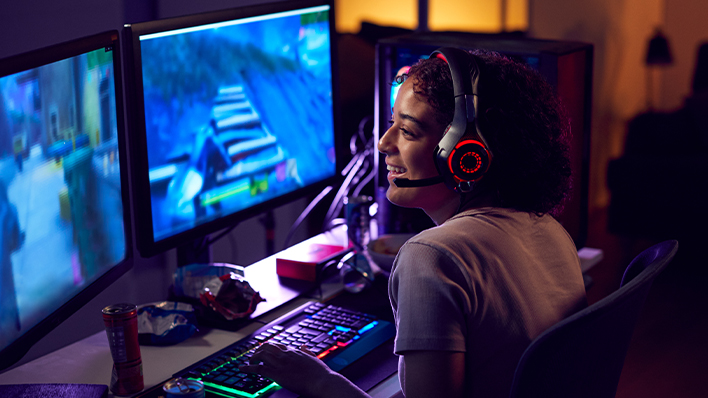 From playing to data analysis, esports has one of the biggest sets of career paths and journeys in any of the BTEC courses.
From playing to data analysis, esports has one of the biggest sets of career paths and journeys in any of the BTEC courses.
“Running an esports course is an uphill battle sometimes,” explains Sharon Westcott, Course Leader BTEC L3/L2 Esports at Newcastle College. “Because when a student says they want to study esports, parents tend to think: ‘Esports? No way. You're not going to play games for the rest of your college life. You're going to do something like history or science - a proper course.
“But what people don’t realise is that esports has one of the biggest sets of career paths and journeys that you've got in any of the BTEC courses. You can go on to be a pro player, although very few people are actually going to make it. [But you can also go into] sports coaching and esports coaching, skills analysis and strategy, such as data analysis. That’s a massive industry. There’s the sports side as well - physiotherapy, health and nutrition.”
There are other opportunities too. Students can continue into the business side of the industry, such as event management, as well as spinning off into related subjects such as cybersecurity, general IT and game design. “You've got teamwork,” Westcott adds. “You've got communication, management, project management, time organisation, commitment. It's all there. It's all there if you get the right kind of environment.”
That’s where the challenge lies. “We’ve been working on machines that are about seven years old,” says Sharon Westcott. “It's not easy and it's definitely not easy for the students. Some of the games don't run very well [on older hardware]. They do crash. The League of Legends team has never forgiven me because they actually froze for four seconds during a match. By time they got back into the game that they'd been annihilated.”
Tackling latency
To support this esports focus, some colleges and universities are looking to develop esports classrooms or gaming labs with im proved equipment for students. Newcastle College is part of NCG, a national college group made up of seven colleges spread across the country. NCG is working with Intel partner and higher education specialist Stone Group to get the right PC equipment and the best value for money. As Rob Elson, Product Manager, Stone Group explains, it’s a delicate balancing act.
“When people think of esports, they often think you need a £2,500 gaming rig. But esports hardware doesn’t need to be expensive. We supply what we call ‘good’, ‘better’ and ‘best’ specs. The ‘good’ [spec] is typically an Intel® Core™ i5 Processor with a mid-range graphics card, 8GB of RAM and about 240GB of NVMe storage. It’s enough to run any gaming title in 1080p resolution.
“The ‘better’ spec still uses an Intel Core i5 Processor, has 16GB of RAM and a bigger NVMe drive, but we upgrade the graphics card to a higher SKU. The ‘best’ option is based around an Intel Core i7 Processor – 16GB of RAM, the same size NVMe drive, plus a 2TB spinning disk for some of the larger game titles that need a few more gigabytes to install.”
Rob Elson believes that demand from education establishments for esports equipment is on the up. “We are offering 12th Gen Intel Core i3, i5 and i7 CPUs with Windows 11 now, and are also being asked for 13th Gen Intel Core options by higher education establishments too. The demand for esports-capable equipment is definitely increasing. I'd say probably about 15% of [orders that] come through to us are esports related, and with the growing popularity of esports, it's gaining more and more traction.
“Esports opportunities always delight us as a team, as we are enthusiastic gamers and we aim to demystify and handle hardware requirements as though the machines will be ours to use personally. We all need a good experience - especially when game performance can be the difference between a win and a loss.”
Building a gaming lab
Crucially, esports hardware doesn’t need to be cutting edge. But it does need to run a variety of games. “The main games we have on our machines [at Newcastle] are Rocket League, League of Legends, Overwatch 2 and Valorant,” says Sharon Westcott. “Those four are the main ones, because those are the ones we compete in. But some of the kids also play Apex Legends, CS:GO, Call of Duty: Modern Warfare and FIFA.”
“Schools and colleges are all about the price point,” Rob Elson explains. “But while price is important, quality and support for our customers are more so. When you invest in hardware, you just want it to work - I don’t know any gamer that appreciates downtime or sending their beloved hardware off for repair. But if it does go wrong, you just need an experienced engineer to turn up and fix it. That's the ‘Stone Way’. It’s what we do and that’s how Stone’s business model has been generated.”
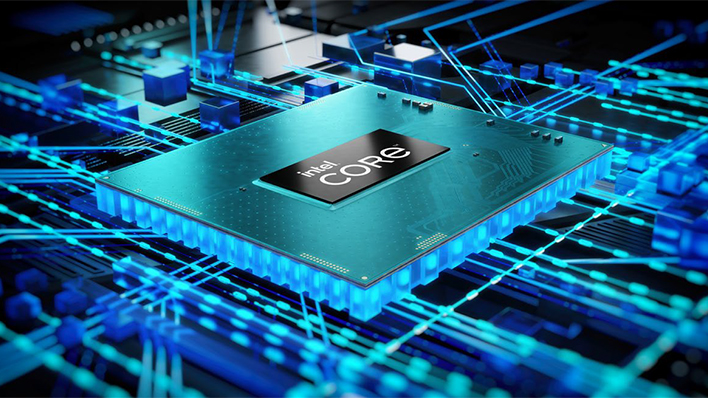 The ‘best’ esports option is based around an Intel® Core™ i7 Processor, says Rob Elson at Stone Group.
The ‘best’ esports option is based around an Intel® Core™ i7 Processor, says Rob Elson at Stone Group.
Stone Group is a long-time Intel partner and has supplied esports units to a number of educational bodies, including Newcastle College and its NCG partner Carlisle College. Since March 2021 Stone has supplied 160 esports units to NCG.
The majority of these units are glass-sided Midi Gaming RGB Towers, equipped with Asus B560 Plus Motherboards and Intel Core i5-11500 processors. Again, the technical specifications of these esports units will vary according to individual college budgets, with some hardware also featuring the more powerful Intel Core i7-10700 and Intel Core i7-11700 processors.
For its gaming lab, Carlisle College ordered multiple esports PCs featuring an Intel Core i5-11500, 32GB of RAM and a 1TB NVMe SSD. “Learners study [four] units with Pearson BTEC at Level 2,” says Lisa Foster, Curriculum Leader at Carlisle College. “Once installed, the new equipment will enable delivery of units 1-3, so that the streaming of games and competitions can take place.”
From learning about esports games, teams and tournaments’ through to esports event planning, Lisa Foster explains that the course has a wide remit. Students are taught to “review businesses, evaluate the success of businesses, create a brand and develop [their] IT skills,” she says. It also introduces participants to a range of live streaming software including Twitch, Mixer, YouTube and Shoutcast.
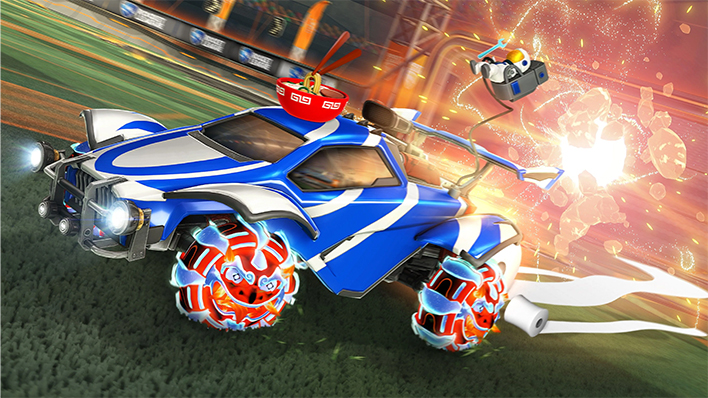 Rocket League is one of a number of competitive games played by students on the esports course at Newcastle College.
Rocket League is one of a number of competitive games played by students on the esports course at Newcastle College.
Intel driving specific educational benefits
The challenge of selecting the optimal mix of hardware to deliver a good gaming experience for students (while keeping budgetary requirements in mind) is just one part of the conundrum. Considerations such as energy use, long-term performance and security are also central to the decision making process, as Stone’s Rob Elson makes clear.
“A workstation can still be an esports rig. It can still be consumer based but it's not always about performance or cost [for education customers], it’s about how long will it last? How much is it going to cost over a period of time? You need PCs that are competitive; that will perform when you need them to and run economically when you need them. That is really important to academic institutions.”
The Intel Core processor family delivers high clock speeds and efficient, performance cores with more cache and AI acceleration. Continuing a 15-year history, Intel has set the pace as a technology leader in PC gaming, with gamer-centric innovations for the PC – across CPU, GPU, and memory – to improve player capabilities and lower costs.
Alongside traditional desktop processors, Intel vPro® can also be a key asset for educators, suggests Rob Elson. The technology can, for example, enable IT teams in a school or college to manage groups of PCs, shutting them down en masse when facilities are closed, but also waking them up and patching them if required. “Anecdotally, we heard that a school that was shut down over the weekend used 40% of their energy over those two days,” says Rob Elson. “Intel vPro enables customers to have more control remotely. This is Intel at its best – designing technology with the bigger picture in mind.”
Sharon Westcott at Newcastle College is also keen to point out that having the latest Intel hardware is essential to run a successful esports course: “I'm determined to be the best [esports course provider]. But I can't do that unless I've got good equipment. From the student side, they get very frustrated when things don't work. So new machines, new equipment just makes your job so much easier, and you can take [the course] even further.”
Intel, esports and a bright future
Esports in education is growing fast, offering a popular route into a huge range of translatable digital skills and acting as a pathway to further learning in associated disciplines. Having the right hardware and software to facilitate learning is crucial. Intel’s commitment to supporting the progression of esports in education through better equipped classrooms and gaming labs will continue to be vital to success.
Learn More
You may find the following resources useful:
Solution provided by

[1]https://www.imarcgroup.com/esports-market
[2]https://www.intel.co.uk/content/www/uk/en/gaming/esports.html
Performance varies by use, configuration and other factors. Learn more at www.Intel.com/PerformanceIndex.
Your costs and results may vary.
Intel technologies may require enabled hardware, software or service activation.
Intel does not control or audit third-party data. You should consult other sources to evaluate accuracy. © Intel Corporation. Intel, the Intel logo, Xeon, Intel Optane and other Intel marks are trademarks of Intel Corporation or its subsidiaries. Other names and brands may be claimed as the property of others




